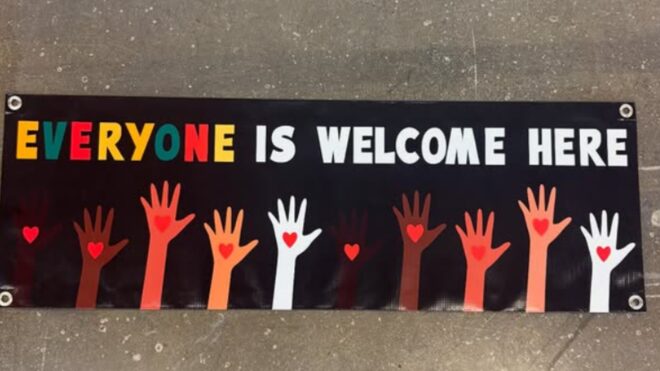When Sara Zuckerman’s 4-year-old son came home from school one day and asked to "say grace," she thought it was odd.
"We are not a religious family," says Zuckerman, a marketing professional. "Toasting and raising a glass, or just waiting for everyone to be at the table, was our version of grace prior to being parents."
Her son’s request moved her to sing along to the fun yet respectful version of grace he learned in school. It is sung to the classic "Frère Jacques," a tune she remembered from her own school days.
It goes like this:
Please and thank you. Please and thank you. For our food. For our food.
We can eat together. We can eat together. With our friends [or family].
Many parents are trying to find engaging and creative ways to bring saying grace and expressing gratitude into the lives of their young children. We spoke to moms of all backgrounds about their variations. Remember, you can adapt and personalize them to your family's faith tradition.
- Giving thanks. "The most effective and lighthearted way to say grace with children is to give thanks," says Reverend Erin Davenport, MSW, director of the Miller Summer Youth Institute at Pittsburgh Theological Seminary. "There are many songs and prayers out there that make praying cute and maybe even more memorable." The prayer they use in her home each night goes something like this:
God, we thank you for this day, we thank you for [insert whoever is sitting at the table with us)] we thank you for this food, and we thank you for [let each child say what they are thankful for right then and there]. Amen.
Encouraging kids to think for themselves and speak of things that relate to their world makes it more engaging. "Sometimes, [in] those moments when our son prays, he is most thankful for the villain he just built with blocks; other times, he is thankful for a guest at the table or chocolate milk," she says. - Attitude of gratitude. Julia Angelen Joy is raising her children without a specific religious affiliation but with a practice of gratitude. "I want them to know that they can and should have the habit of showing gratitude for the everyday pleasures," she says. Her children participate in a daily ritual she calls, "High, low, something new you know, and what you are thankful for."
"We can cover a lot of ground listening to each other's daily highs and lows, what we learned or discovered, and what we are thankful for. It’s simple, even the littlest ones have it memorized, and no one has to be creative or poetic." - Keep it simple. Gratitude is also key at career coach Wanda Sealy’s home. Her children express it simply at each meal:*
I'm thankful for this yummy breakfast (or lunch, dinner, snack) I'm about to receive.* - Put it to music and make it rhyme. Many moms say that using music or a favorite tune makes any prayer, blessing, or expression of gratitude more fun for kids. "Put it in a song," says relationship coach Deborah Jerome. "Take the words you would use to say grace and put them to a melody. It’s fun and children learn quickly through the use of music." You can make it even more fun if it rhymes (or sort of rhymes). For example, in her home, they like to put a classic prayer to the tune "Twinkle, Twinkle Little Star":*
God is great
God is good
And we thank him for our food.* - Try Girl Scout Graces. Abby Norman, of the Accidental Devotional blog, says she and her children sing Girl Scout Graces that she learned at camp when she was 6 years old. There many of them on the Internet often sung to classic and fun tunes. Here’s one we found that is meant to be sung to the tune of The Addams Family theme song, with snapping fingers.*
We've filled our plates and dishes,
With food that is nutritious,
And all that we can wish is,
To thank you very much.
Da da da da (snap snap)
Da da da da (snap snap)
Da da da da (snap snap)
Da da da da (snap snap)*
Written by Laurie Sue Brockway for The Stir
What are your kids’ favorite ways to say grace or give thanks at mealtime?
Image © Tim Pannell/Corbis



